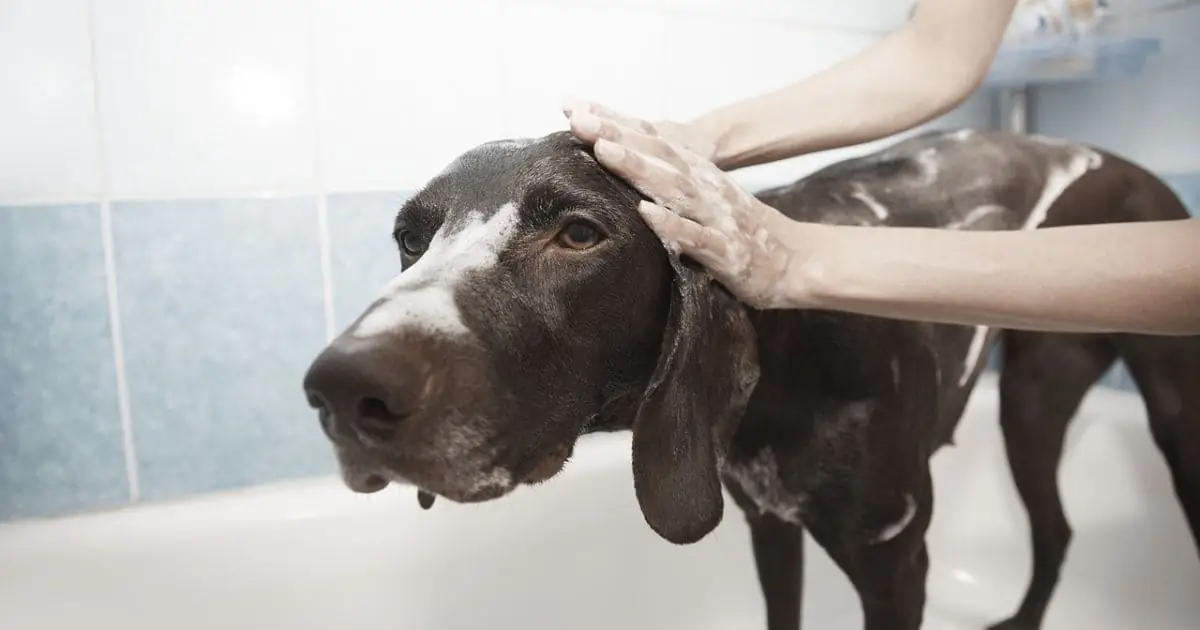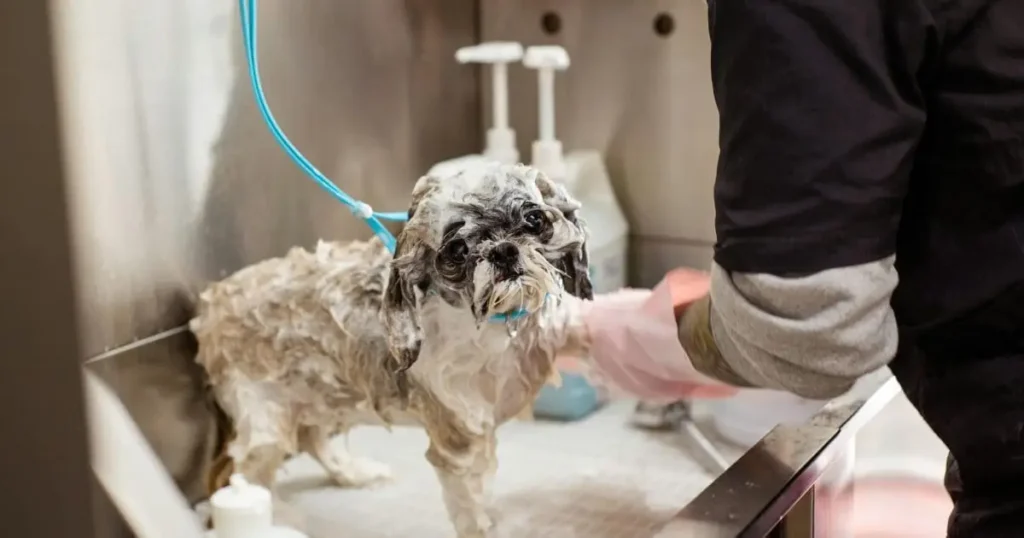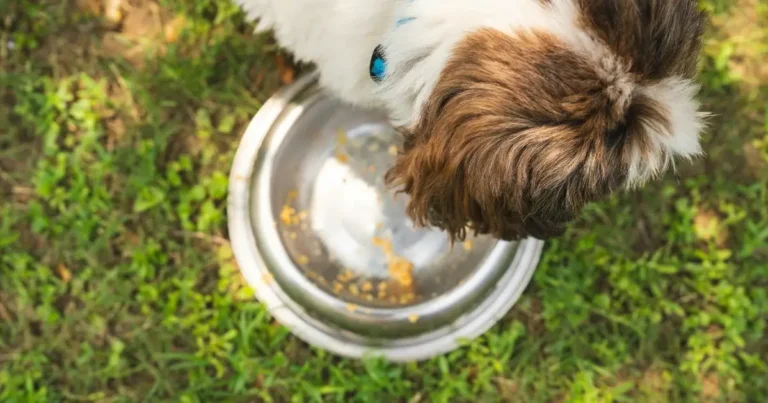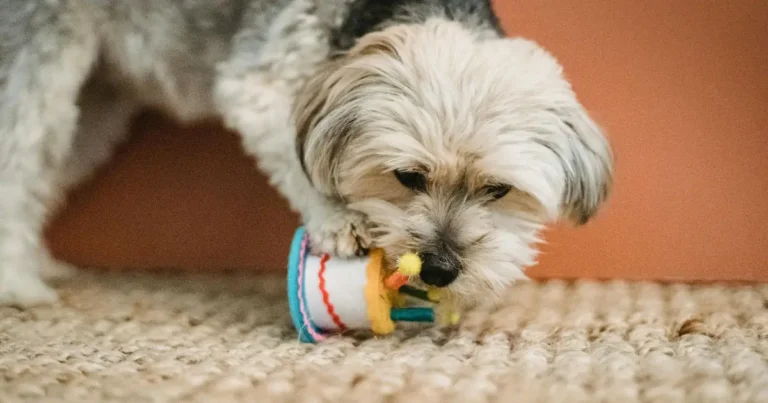Welcome to Loki & Nala Family

Table of Contents
Selecting the perfect shampoo ensures your dog stays clean and smells delightful. Dog owners often wonder if they can use baby shampoo for their furry friends. After all, baby shampoo is gentle and mild, so it is a good choice for dogs with sensitive skin. But is it safe for dogs to use baby shampoo?
In this article, we’ll explore whether baby shampoo is safe for dogs, discuss the pros and cons, and offer tips on how to bathe your dog using baby shampoo properly. Plus, we’ll look at alternative options to help you make the best decision for your dog’s skin and coat health. For more information, check out 7 Best Dog Shampoos for Sensitive Skin to find the perfect solution for your dog’s bathing needs.
Why Do Some Dog Owners Consider Using Baby Shampoo?
Baby shampoo is formulated to be extra gentle, hypoallergenic, and tear-free, making it ideal for a baby’s delicate skin. Because it’s designed for sensitive skin, it could also be a suitable option for their dogs, especially if their pet suffers from allergies, dry skin, or irritation from standard dog shampoos.
Dog shampoos can sometimes contain harsh chemicals or strong scents that may be too much for dogs with sensitive skin. In comparison, baby shampoo has a neutral pH and fewer irritating ingredients, which leads some to think it’s a safer, softer choice for dogs.
Is Baby Shampoo Safe for Dogs?
The short answer is yes, baby shampoo can be safe for dogs, but it should not replace your dog’s regular shampoo permanently. While it is gentler than many human shampoos, baby shampoo is still formulated for humans, not dogs, which means its pH balance is designed for human skin, not for a dog’s.
Dogs have a different skin pH level than humans, with most dogs having skin that’s more alkaline. Human and baby shampoos are typically formulated to be slightly more acidic to match human skin, which has a pH level closer to 5.5. Dogs, on the other hand, have a skin pH level that falls between 6.2 and 7.4. Using shampoos formulated for humans, including baby shampoos, regularly can potentially disrupt your dog’s skin’s natural protective barrier, leading to dryness or irritation over time.
Benefits of Using Baby Shampoo for Dogs
Despite the differences in pH levels, there are some benefits to using baby shampoo for dogs, mainly when used occasionally and under the right circumstances.
- Mild Formula: Baby shampoo is made to be gentle on sensitive skin, which can be a lifesaver if your dog has a skin condition or is prone to irritation.
- Tear-Free: Since baby shampoo is tear-free, it’s great for avoiding eye irritation during bath time.
- Hypoallergenic: Many baby shampoos are hypoallergenic, meaning they don’t contain ingredients that commonly cause allergic reactions, which can be helpful for dogs with allergies.
- Convenient: If you run out of dog shampoo, using baby shampoo is a safer alternative than using harsh human shampoos or other cleaning products that can be too rough for your pet’s skin.
Potential Risks of Using Baby Shampoo on Dogs

While baby shampoo can be a safe temporary option, there are some risks to be aware of if you plan to use it on your dog long-term:
- pH Imbalance: As mentioned earlier, baby shampoo is not formulated for a dog’s skin pH. Regular use of baby shampoo can strip your dog’s coat of its natural oils, leading to dryness, flakiness, or even increased susceptibility to infections.
- Fragrances and Chemicals: Although baby shampoos tend to be gentler than regular human shampoos, some brands still include fragrances, dyes, and other chemicals that may not be suitable for dogs, particularly those with sensitive skin or allergies.
- Long-Term Effects: Frequent use of baby shampoo can weaken your dog’s skin barrier over time, leading to dryness and potential skin issues like hot spots or bacterial infections.
How to Safely Use Baby Shampoo on Dogs
If you decide to use baby shampoo on your dog, follow these guidelines to minimize any potential risks and ensure your dog stays clean and healthy:
- Check the Ingredients: Always choose an unscented, hypoallergenic baby shampoo without artificial dyes or harsh chemicals. Avoid any products with strong fragrances or unnecessary additives.
- Use Sparingly: Don’t use baby shampoo for every bath. It’s best used in emergencies or occasionally if you don’t have dog shampoo on hand.
- Dilute the Shampoo: Diluting baby shampoo with water can make it even gentler on your dog’s skin. Mix one part baby shampoo with two parts water before applying it to your dog’s coat.
- Rinse Thoroughly: Following the shampooing process, it’s essential to give your dog’s coat a thorough rinse to ensure all shampoo is washed away. Leftover residue can irritate your dog’s skin, so take the time to rinse well.
Alternatives to Baby Shampoo for Dogs
While baby shampoo can be safe in some situations, there are other alternatives explicitly designed for dogs that you may want to consider:
- Dog-Specific Shampoos: These are formulated with the correct pH balance for dogs and include ingredients that help nourish and protect your dog’s skin and coat. Some options cater specifically to dogs with sensitive skin or allergies.
- Oatmeal Shampoos: Oatmeal-based shampoos are an excellent choice for dogs with dry or irritated skin. They help to soothe inflammation and restore moisture without harsh chemicals.
- Organic or Natural Shampoos: These shampoos are made with plant-based ingredients, making them a safe and gentle alternative for dogs with sensitive skin. Look for formulas free of parabens, sulfates, and artificial fragrances.
- Medicated Shampoos: If your dog has specific skin conditions like dermatitis or fungal infections, your veterinarian may recommend a medicated shampoo to address these issues while maintaining the proper pH balance.
Conclusion: Should You Use Baby Shampoo for Dogs?
In summary, baby shampoo for dogs can be a safe and gentle option, particularly in emergencies or for dogs with sensitive skin. However, it’s not the best long-term solution due to differences in pH balance between dog and human skin. If you choose to use baby shampoo, ensure it’s unscented, hypoallergenic, and used sparingly. For regular grooming, it’s best to stick with shampoos specifically formulated for dogs to keep their skin and coat healthy.
By understanding the potential risks and benefits of using baby shampoo, you can make an informed decision that ensures your dog’s hygiene and skin health are maintained. Always consult with your veterinarian if you’re unsure about what products are best for your dog’s unique needs.









